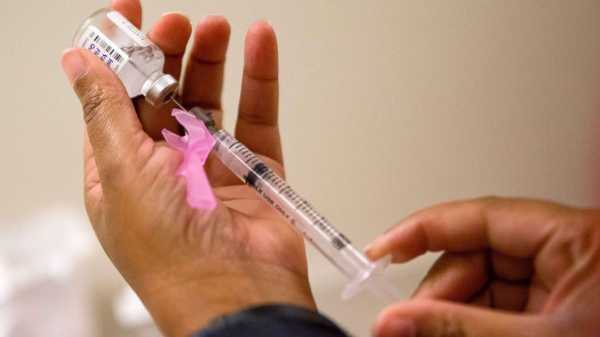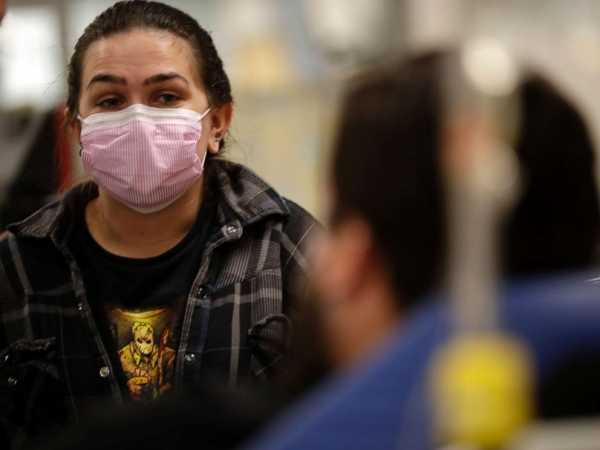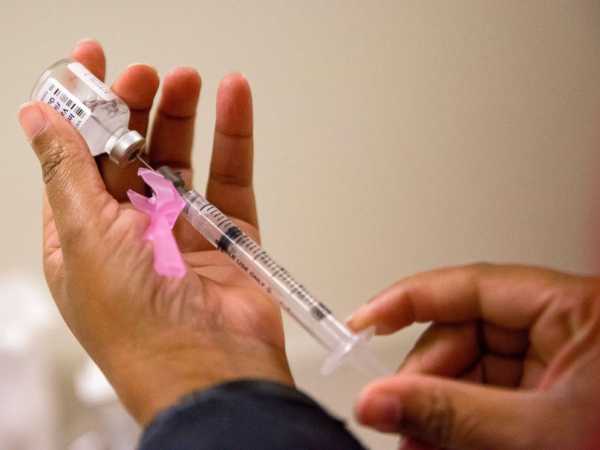
While the flu vaccine remains the best method to prevent illness and death during the flu season, a new study published in Clinical Infectious Diseases investigates why “vaccine effectiveness continues to be modest.”
Flu outbreak has killed at least 63 children: CDC officials
Heartbroken family explains why 3-year-old who died from flu wasn’t vaccinated

Gregory Bull/APIn this Jan. 10, 2018 photo, Torrey Jewett looks on as her roommate Donnie Cardenas recovers from the flu at the Palomar Medical Center in Escondido, Calif.
FDA Commissioner Scott Gottlieb, M.D. in his statement on the the efficacy of the 2017-2018 influenza vaccine states, “This year much of the illness has been caused by one strain of influenza A called H3N2, with another strain of influenza A called H1N1 and strains of influenza B contributing to lesser extents.”
The effectiveness of the flu vaccine for H3N2 is estimated to be around 25 percent this season, according to an interim report by the Centers for Disease Control and Prevention (CDC). Overall, this season’s vaccine is 36 percent effective. That means that over one-third of the people who get the shot won’t get the flu. In children, it’s even more effective — 59 percent.
With vaccines against common childhood diseases effective in more than 90 percent of people, why is targeting the flu so difficult?
Researchers have found that poor immune response, based on past encounters with flu strains, is the culprit. When people get the flu virus or vaccine, their immune system makes antibodies that recognize and attack those strains. Antibodies made earlier in life have a stronger response, and affect how the immune system makes future antibodies. A person’s immune response could be worse at making effective antibodies, even if the vaccine protects against the right strains.
“We see that both vaccinated and unvaccinated people were infected with similar flu viruses and that the vaccine didn’t elicit a strong immune response from most people in our study,” said Yonatan Grad, M.D., PhD, assistant professor of immunology and infectious diseases at the Harvard T.H. Chan School of Public Health and co-author of the study, in a press release.

David Goldman/APA nurse prepares a flu shot at the Salvation Army in Atlanta, Feb. 7, 2018.
The CDC admits that vaccine effectiveness estimates against influenza A (H3N2) viruses have been lower than estimates against influenza A (H1N1) and influenza B viruses for several years. They cite factors such as age, baseline health status and that year’s vaccine “match” — the similarity between the viruses used to make the vaccine and the ones that are prevalent in a certain year. They also acknowledge that more research is needed to determine if vaccine effectiveness changes between egg-based and non–egg-based vaccines. It is thought that non-egg-based vaccines are less likely to have mutations that lead to less protective effects.
However, the study authors conclude that egg-based vaccines did not explain the low H3N2 vaccine efficacy rate, at least not in 2012-2013.
The leading health officials insist that even with current vaccine effectiveness estimates, vaccination will still help prevent influenza illness, including thousands of hospitalizations and deaths.
Sourse: abcnews.go.com






